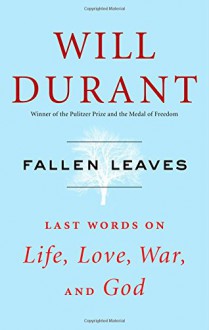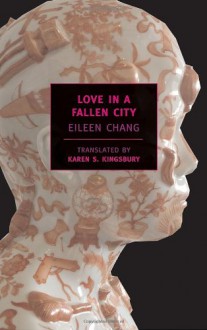
Will Durant was an American writer, historian and philosopher. Over the course of his life, people asked for his personal take on things, and this book is the culmination of those thoughts. I thoroughly enjoyed reading this; a nice mix of timeless thoughts and ideas best understood in the context of the times.
I don’t usually quote from books I read for pleasure, but I found myself highlighting different parts — some for the lyrical writing or truisms, and others for the (thankfully) dated concepts.
Durant writes that youth, “is learning to read (which is all that one learns in school), and is learning where and how to find what he may later need to know (which is the best of the arts that he acquires in college). Nothing learned from a book is worth anything until it is used and verified in life; only then does it begin to affect behavior and desire. It is Life that educates, and perhaps love more than anything else in life”.
After that, I was a little taken aback by his thoughts on education. “As for the girl, it will avail her nothing to know a foreign language, archeology, and trigonometry, if she cannot manage a home, a husband, and a child; fidelity is nourished through the stomach, and good pies do more for monogamy than all the languages that have ever died. One tongue is enough for any woman, and a good mother is worth a thousand PhDs.” So of course after reading that I have to find out about his wife, and writing partner, Ariel. Here’s the shortform Wiki on her: came to the US from the Ukraine, attended the Ferrer Modern School, where Will taught. No note on whether she graduated, but Will resigned his post to marry her — she was fifteen at the time. They married on Halloween, 1913, and died within two weeks of each other in 1981. So, I’m not sure how someone who shared a Pulitzer with his wife reconciles that kind of thinking, but, to be fair, the part about the pies is totally spot on.
I can’t end on that quote, because then you won’t think I liked this book, and I truly did, despite what that says about my feminist tendencies. Here is a sentence of beauty to mull over, “Civilization is a fragile bungalow precariously poised on a live volcano of barbarism.” Too depressing? How about a suggestion he offers? “No one has a right to bring a child into the community without having passed tests of physical and mental fitness to breed.” Ok, maybe that would be bad; not sure I would have passed, especially given what my doctor liked to call my “advanced maternal age”.
What I really loved about this book is that while it felt at times like poetic musings, it was, for the most part, simple, concise and focused. There are short little essays on each topic, so the book will probably not keep you up late at night on the edge of your seat. But each time you open it, you will be glad to be back in his company again.

 Log in with Facebook
Log in with Facebook 







